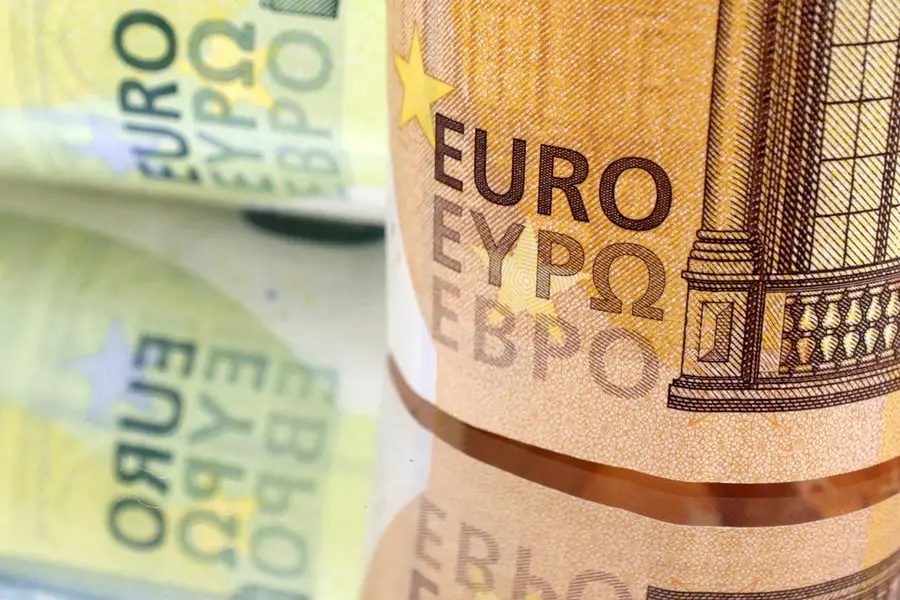PHOTO
The risk premium investors are demanding to hold French government bonds rose to its highest level since early 2017 on Friday, as President Emmanuel Macron's grip on power weakened after left-wing parties united against him.
The spread between French and German borrowing costs was on track for its biggest weekly rise since the euro zone debt crisis in 2011, at more than 25 basis points (bps).
The difference between French and German 10-year borrowing costs rose to 77 basis points (bps) on Friday, as German yields fell, while French yields held steady. Yields move inversely to prices.
Investors have sold French assets since Macron gambled and called a snap parliamentary election on Sunday in response to a resounding victory for the far right in the European Parliament.
Market participants fear that the far right, led by Marine Le Pen's Rassemblement National, will win the election and push a high-spending agenda that will add to France's already large debt load.
Part of the widening in the closely watched yield spread has been caused by a fall in German yields as central banks are more likely to cut interest rates after weaker-than-expected U.S. inflation and jobs data, and as investors rush to the safety of German debt due to mounting political uncertainty.
Germany's 10-year bond yield was last down 7 bps at 2.423%, its lowest in a month, while France's 10-year yield was down 1 bp at 3.168%.
Market analysts said the decision by France's left wing parties to form a 'Popular Front' to contest the snap election was one driver of the market moves, saying it dents Macron's chances of coming out victorious.
"There is a possibility that a far right candidate could become the next prime minister of France," said Mohit Kumar, chief economist for Europe at Jefferies. "This would be at a time when the French deficit and debt picture is already looking weak."
"Market concerns range from a stalling of the reform process, possible rating downgrades to increasing concerns over talk of a breakup in the Euro area."
The concerns over the French election have hurt the bonds of other indebted countries, with the Italian-German yield spread rising to 152 bps, its highest since February.
Italy's 10-year bond yield was last down 3 bps at 3.919% on Friday, having fallen 1 bp this week, compared with a 19 bps fall in Germany's equivalent yield.
Germany's 2-year bond yield, which is sensitive to European Central Bank interest rate expectations, was last down 9 bps at 2.807%, its lowest since early April.
(Reporting by Harry Robertson; Editing by Stephen Coates and Shinjini Ganguli)





















